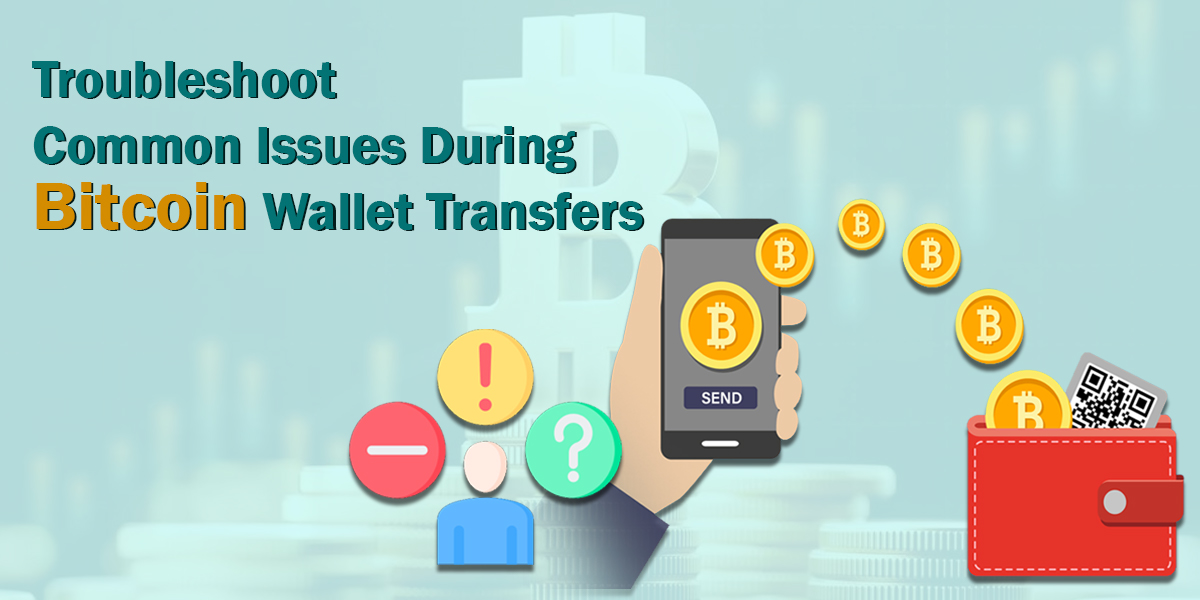Troubleshoot Common Issues During Bitcoin Wallet Transfers
Transferring Bitcoin between wallets is a routine task for cryptocurrency users, but it's not always without its challenges. Common issues can arise, causing delays or concerns about the safety of your digital assets. In this guide, we will explore some of the most frequent issues encountered during Bitcoin wallet transfers and offer troubleshooting solutions to ensure your transactions go smoothly.
Read More: How To Transfer Bitcoin From One Wallet To Another
Common Issues During Wallet Transfers
Network Congestion
One of the most common issues in the world of cryptocurrency is network congestion. When the blockchain network experiences high traffic, it can slow down transaction processing times and result in delays. To troubleshoot this issue, you can:
Check the current network status to determine if congestion is the problem.
Adjust the transaction fee to prioritize your transfer.
Use a blockchain explorer to monitor the progress of your transaction.
Incorrect Wallet Addresses
Entering an incorrect wallet address is a significant concern when transferring Bitcoin. Even a single character error can lead to irreversible loss. To avoid this issue:
Always double-check the recipient's wallet address before confirming the transfer.
Consider using QR codes to scan wallet addresses for accuracy.
Start with a small test transaction if you're uncertain about the address.
Wallet Compatibility
Not all Bitcoin wallets are compatible with one another. Some wallets may not support specific features or transaction types, leading to issues. To address this:
Research and ensure that the sending and receiving wallets are compatible.
Consult the wallet providers or user manuals for guidelines on compatible wallets.
Slow Confirmations
The Bitcoin network requires confirmations to validate transactions. Slow confirmations can be a cause of concern, especially for time-sensitive transfers. To troubleshoot this:
Review the transaction fee; a higher fee can expedite confirmation times.
Use a Bitcoin wallet with dynamic fee adjustment.
Consider off-peak times for faster confirmation during network congestion.
Outdated Software
Using outdated wallet software can result in issues during transfers. Wallet providers regularly update their software to improve performance and security. To address this:
Ensure your wallet software is up-to-date with the latest version.
Keep an eye on announcements and updates from your wallet provider.
Transaction Fees
Transaction fees are essential for prioritizing Bitcoin transfers. Too low a fee can lead to delays, while excessive fees can be costly. To troubleshoot this:
Use a fee estimator to determine the appropriate transaction fee for the current network conditions.
Some wallets offer dynamic fee adjustment; consider using one of these wallets.
Unconfirmed Transactions
Sometimes, a transaction may remain unconfirmed for an extended period. This can be due to network congestion or other factors. To resolve this:
Monitor the transaction on a blockchain explorer.
If the transaction remains unconfirmed for an extended period, you may need to use a transaction accelerator service.
Conclusion
While Bitcoin wallet transfers can encounter common issues, understanding how to troubleshoot them can save time and resources. By addressing network congestion, double-checking wallet addresses, ensuring wallet compatibility, managing transaction fees, staying up-to-date with software, and monitoring confirmations, you can navigate the cryptocurrency world with confidence. Remember to stay informed about best practices and seek assistance when needed, ensuring your Bitcoin transfers are efficient and secure.



Comments
Post a Comment